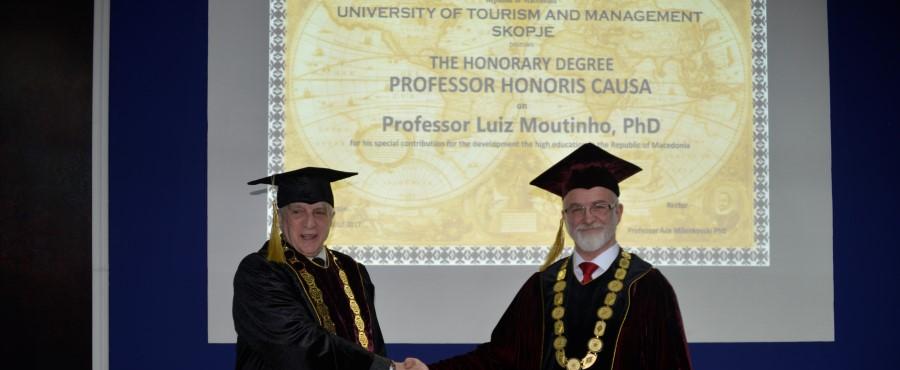
Professor Luiz Moutinho received an honorary degree from the University of Tourism and Management in Macedonia on February 23rd.
Speaking from his home in Scotland after giving a talk in Zagreb, Croatia, Professor of BioMarketing and Futures Research at DCU Luiz Moutinho said he was not expecting the honour, having already given two seminars in the University before receiving the title of Professor Honoris Causa.
The professor described the award as “probably the highest honour. In any academic career, this is the highest accolade an academic can receive”.
The title was awarded to Professor Moutinho by the Rector of the University for his contribution to the development of higher education in Macedonia.
Professor Moutinho is an extensively published author of books and academic journal articles. He completed his PhD in Marketing at the University of Sheffield in 1982 and became a full Professor in Marketing in 1989.
Moutinho has Visiting Professorship positions in various institutions around the world. He was formerly the Director of the Doctoral programmes at the Confederation of Scottish Business Schools, Cardiff Business School and the University of Glasgow School of Business and Management, as well as being the Founding Editor of the Journal of Modelling in Management.
Moutinho has various “pet projects” he is working on, such as EMOWEAR, a wearable tech jacket that could monitor human emotions, and an upcoming book on innovative research methodologies.
The DCU lecturer also has an upcoming collaboration with Pennsylvania State University in America to give courses on Neuroscience and Biometrics in Marketing in Istanbul and Dubai.
Moutinho described himself as “very concerned” about the future of academic marketing, saying “teaching has not changed in thirty years”. Moutinho has focused on developing “radical ideas” that respect and help people throughout his career, expressing disappointment in business marketing practice that focuses on maximizing profits and deceiving consumers.
Niall O’Donoghue



